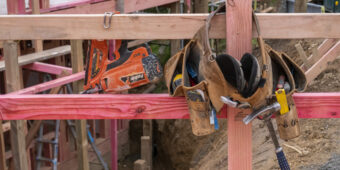Largely positive response to overseas building products change
28 Apr 2025, Building & Housing, Industry News, News, Regulatory

With MBIE and Building and Construction Minister Chris Penk touting the proposed changes to using overseas building products loudly, Under Construction asked for industry feedback on the plans. It’s early days, but there’s been a largely positive response from the construction industry to the news that it will be easier to import and use overseas building products in New Zealand
The Government intends to make it easier for builders to use high-quality products imported from overseas and has made changes to the Building Act to achieve this.
“We expect that from July, more than 12,000 essential products – including plasterboard, cladding, and insulation – will be cleared for use through cited standards in the new Building Product Specifications pathway,” said Building and Construction Minister Chris Penk.
“Building Consent Authorities must accept them, so long as the products are used as intended.”
While the changes to the Building Act passed on April 3, 2025, ministers are yet to set decision-making criteria in regulations, said Penk.
“Work is already underway to establish robust regulations for recognising new products and standards, ensuring only top-quality materials enter the market. This includes targeted consultation with industry leaders and local government.”
Decision-making criteria
To establish “robust regulations”, a consultation (which closed on April 17, 2025) was run to gather feedback on five decision-making criteria:
- The certification scheme certifying the overseas building products or methods has robust process for evaluation, assessment and certification.
- There is sufficient evidence to demonstrate the product certification’s suitability in the New Zealand environment/context.
- Building products or methods certified under the scheme would meet or exceed equivalent performance criteria in the New Zealand Building Code.
- Certified building products and certification schemes have not been subject to enforcement actions (or bans) in New Zealand or in other countries, which could indicate a current increased risk of failure.
- Product certificates for the certified building products are readily available and written in plain language and are suitably detailed.
A happy industry
In the most part, industry reaction has been positive.
Vee Aupa’au, Founder of Biform Decking, said the legislation could be a positive move “if managed well”.
“The New Zealand building industry will benefit from a wider range of suitable products to create competition and keep costs down, and also to prevent supply chain delays and monopolies in certain product areas.”
Cost and quality benefits
The CBS Cooperative, which leverages the collective purchasing power of its members in the construction industry, said there could be several benefits.
“By enabling more innovative and alternative products to enter the market, the construction industry will see improved efficiency, reduced costs and enhanced product quality. This evolution will empower designers and builders, fostering a competitive landscape that ultimately provides consumers with greater choice and better value,” said Carl Taylor, CEO of CBS Cooperative.
Katie Kelsall, National Marketing Manager for Landmark Homes NZ, tentatively welcomed the changes, but questioned whether large builders would experience the benefits claimed by Penk.
“There’s potential for downward pressure on costs in the broader market but, in our case, we work exclusively with preferred suppliers. That means we already have established agreements in place that prioritise quality, consistency and compliance.
“So, while the wider industry may benefit from additional competition and increased product availability, for us, cost savings won’t necessarily come from using cheaper materials but rather from supply chain stability and increased product certainty. If this amendment helps ease bottlenecks and opens the door to more timely access to materials, even through our existing supply partners, that’s a win.”
When the changes were announced, some – such as law firm Minter Ellison Rudd Watts – questioned whether it would result in more time-consuming council inspections where new products were used. However, at least one council says that shouldn’t be the case.
No extra time requirements anticipated
“Queenstown Lakes District Council (QLDC) does not anticipate any time-saving or additional time to be spent on inspections, as the product will have been approved at the building consent approval process and the inspector will still only need to ensure the product is being installed as per the consented details,” said a spokesperson.
QLDC added that it didn’t anticipate any challenges for Building Consent Authorities (BCAs) when new products used for high-risk elements such as cladding, joinery or structure.
“As the relevant overseas standards and certifications (similar to New Zealand’s CodeMark scheme) will be pre-approved by the Ministry of Building, Innovation and Employment (MBIE), accepting products conforming to those approved standards or covered by the relevant approved certification scheme should be straightforward for the BCA. The only potential challenge QLDC anticipates is accessing the actual overseas standard or certification documents on occasions when it’s necessary to check the product is being used appropriately.”
While QLDC was fairly confident in its approach to the new legislation, Upper Hutt City Council (UHCC) was more reserved.
Tim Harty, UHCC General Manager Operations, told Under Construction: “How this legislation impacts councils will depend on MBIE’s implementation of the amendment. Upper Hutt City Council will follow the guidelines and codes accordingly. Until these changes are established (expected in 2026), we’re unable to provide further information.”
Register to earn LBP Points Sign in



